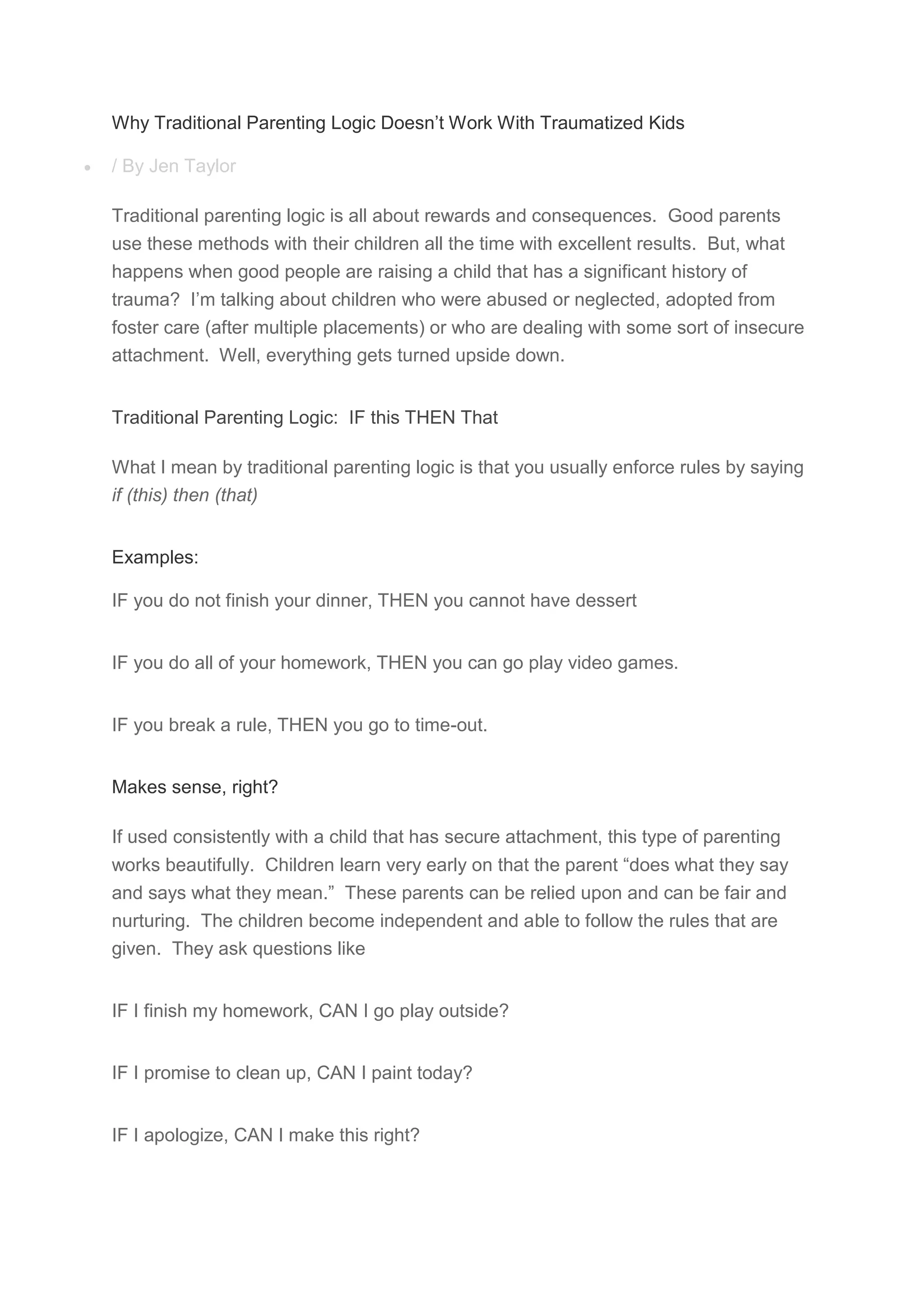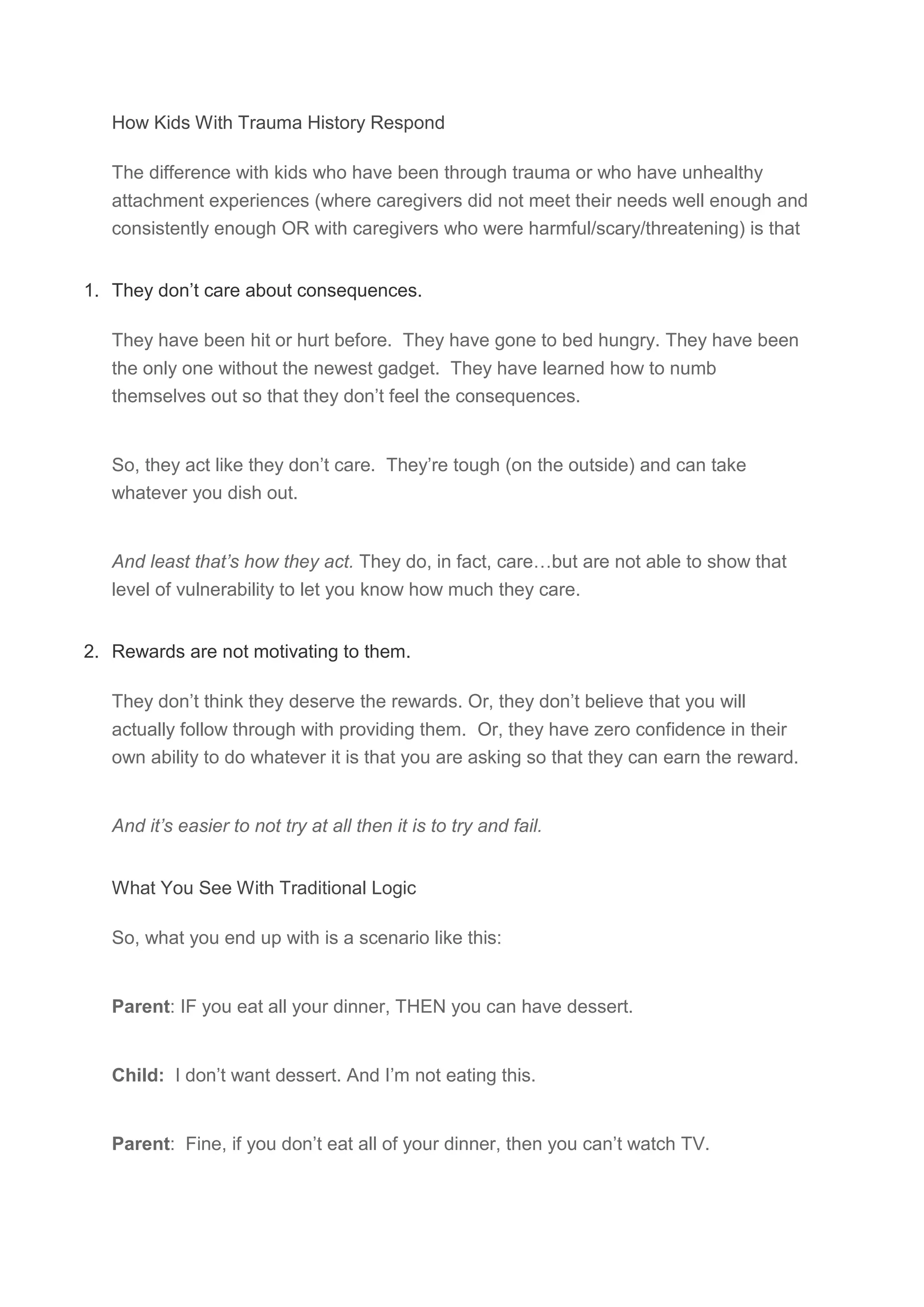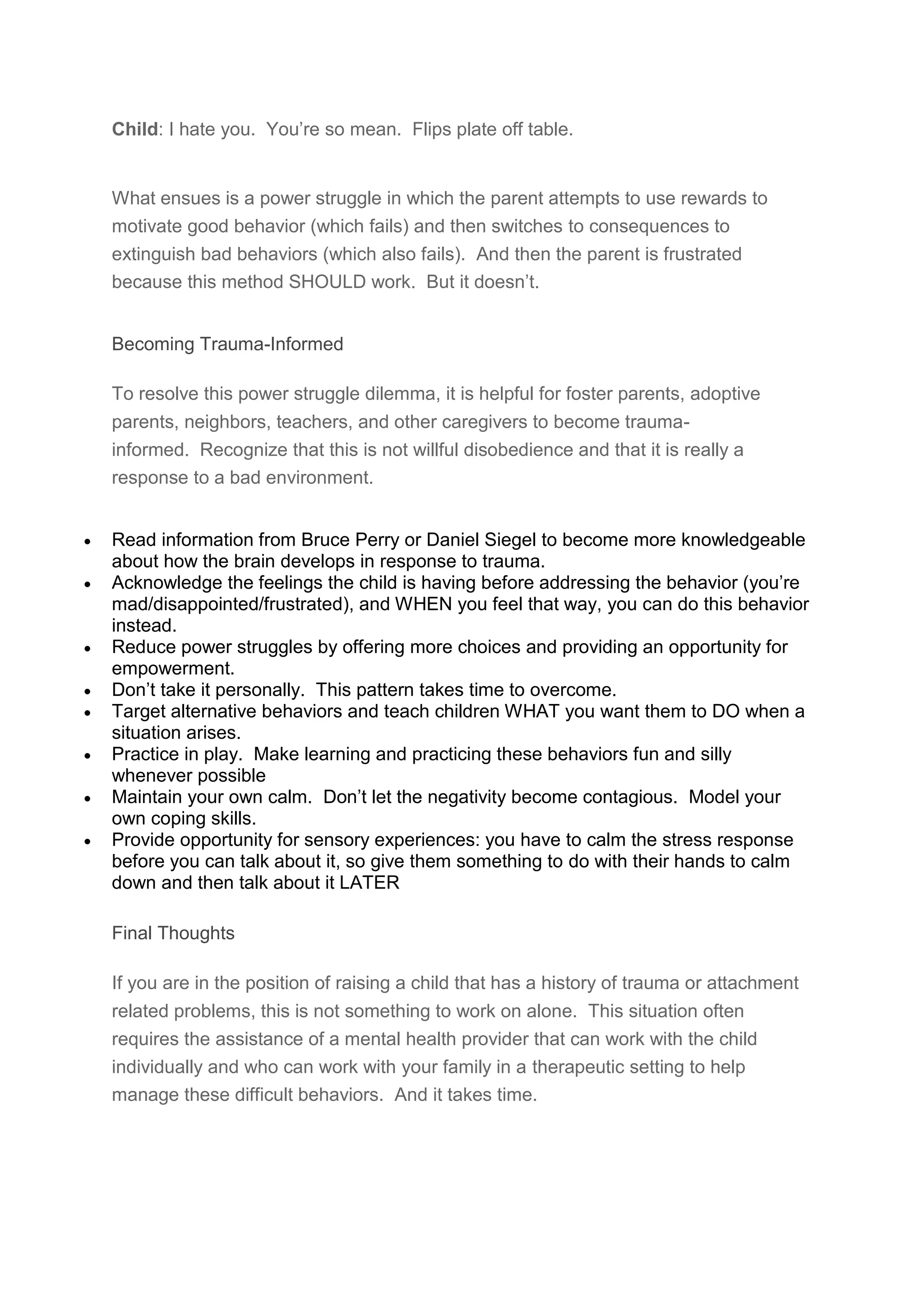Traditional parenting strategies that rely on rewards and consequences often fail when applied to children with a history of trauma, as these children may be indifferent to consequences and unmotivated by rewards. Instead, caregivers should adopt a trauma-informed approach that acknowledges the child's feelings and reduces power struggles by providing choices. Seeking support from mental health professionals can help families navigate the complexities of raising traumatized children.


